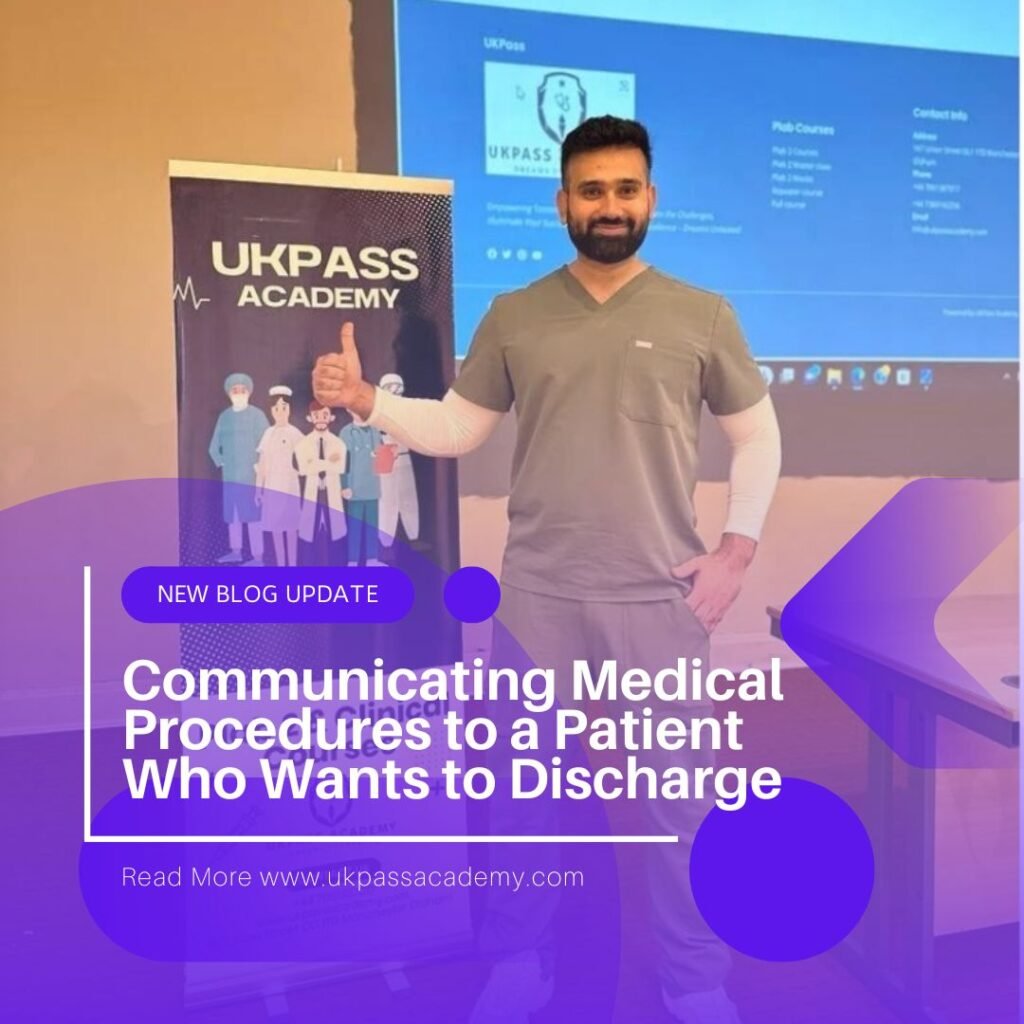Hello everyone, Dr. Zeeshan here from UKPASS Academy. Today, I want to delve into a scenario that’s crucial for PLAB 2 preparation: effectively communicating medical procedures to a patient who is hesitant to stay in the hospital. Let’s break down a this blog to understand the approach and importance of patient communication in such situations.
Overview of Symptoms
Tom, a 63-year-old patient, presented at the hospital after vomiting blood following a night out. Understandably, he’s eager to go home, but as his doctor, it’s my responsibility to ensure he understands the gravity of his condition and the necessary steps we must take.
Initial Chat and Explanation
Why Hospitalization? Tom, although your bleeding has stopped and you feel stable now, vomiting blood is always a serious concern. I’ll explain why we recommend further investigation before you make a decision to leave.
The Recommended Procedure: Endoscopy
What is Endoscopy? Endoscopy involves inserting a camera through your mouth to examine your food pipe and stomach. This helps us locate any bleeding and understand its cause.
- Purpose: Identify bleeding source and possibly take tissue samples.
- Preparation: You’ll need to fast for six hours before the procedure to ensure clear visualization.
- During the Procedure: Local anesthetic will numb your throat, and you’ll be given medication to relax, though you won’t be asleep.
Risks and Benefits
Why is this Necessary? Although there are risks associated with the procedure—such as bleeding or infection—the benefits outweigh them. Detecting any issues now prevents potential worsening of your condition later.
- Risks of Not Proceeding: If you leave and the bleeding recurs, it could become life-threatening.
Decision Making
Patient’s Decision Tom, I understand you want to go home to see Ralph, but it’s crucial to weigh the risks we’ve discussed. If you decide to leave, please monitor for any signs of worsening and seek immediate medical help if needed.
Conclusion
In situations like these, clarity and empathy are paramount. Tom’s decision to leave against medical advice highlights the challenge of balancing patient autonomy with medical necessity. As aspiring PLAB 2 candidates, it’s essential to practice scenarios like this to refine our communication skills and ensure patients make informed decisions about their health.
Through effective communication, we can build trust and ensure that even in difficult circumstances, patients like Tom understand the rationale behind medical recommendations. If you found this breakdown helpful, stay tuned for more insights into patient interactions at UKPASS Academy.
Thank you for reading!

